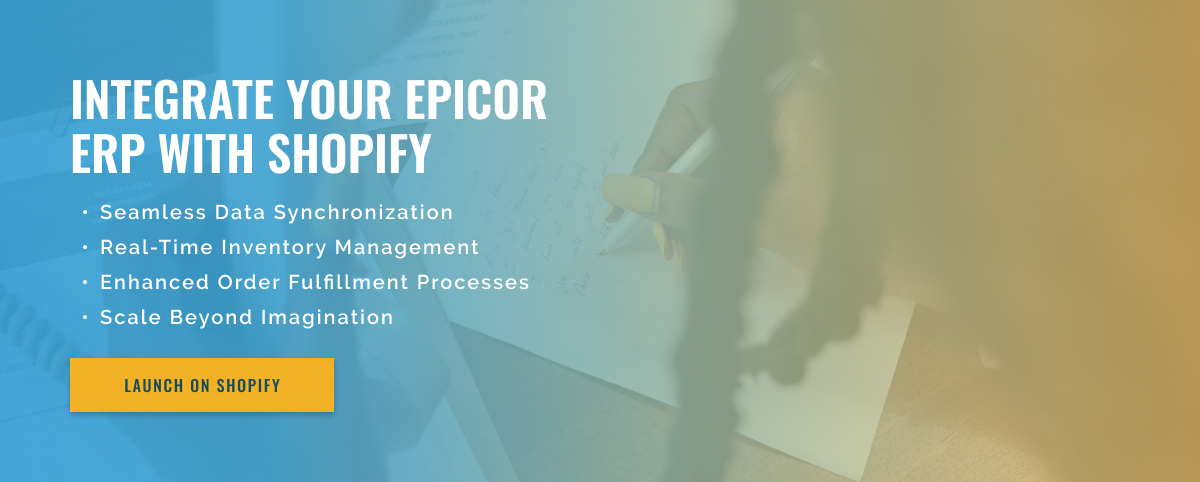3 minute read
Maximizing Tax Reporting Efficiency with Shopify and Epicor
As eCommerce continues to grow, online retailers are challenged to streamline their back-end processes to meet customer demands. A key aspect of running a successful online store is tax reporting. Without accurate and timely tax returns, businesses risk financial penalties and a loss of credibility with customers. This is where the integration of two powerful platforms, Shopify and Epicor, comes in to simplify and speed up tax filing.
Shopify is a popular eCommerce platform that allows businesses to create and manage online stores. It offers various features such as inventory management, payment processing, and customer data management. Epicor, on the other hand, is an ERP (Enterprise Resource Planning) software designed to manage all business processes, including finance, supply chain, and customer management. By integrating these two systems, businesses can efficiently manage their sales and tax reporting processes.
One important way that Shopify and Epicor integrate to make tax preparation easier is by automating the entire process. Traditional manual methods required businesses to manually collect tax information from their online store, enter it into their accounting system, and then generate reports. This process was not only time-consuming, but also prone to human error. With the Shopify and Epicor integration, this entire process is automated, eliminating the risk of data entry errors and freeing up valuable time for business owners.
Additionally, the Shopify and Epicor integration enables real-time data synchronization. This means that tax information for online sales is automatically synced with the accounting system, providing businesses with accurate and up-to-date tax reports. This feature allows businesses to easily monitor their tax obligations and make informed decisions about tax planning and compliance.
What’s more, the Shopify and Epicor integration also ensures tax compliance across jurisdictions. Since online stores serve customers from all over the world, tax regulations can be complicated and difficult to navigate. However, with an integrated system, businesses can easily determine which taxes to collect based on the customer’s location and automatically generate tax reports for each jurisdiction. This reduces the burden on businesses, especially those with a global customer base, and helps them comply with tax regulations.
In short, the Shopify and Epicor integration not only simplifies and speeds up the tax filing process, but also ensures accuracy and compliance with tax regulations. By automating and syncing data, businesses can focus on growing their online store without worrying about the tedious tax filing processes.

